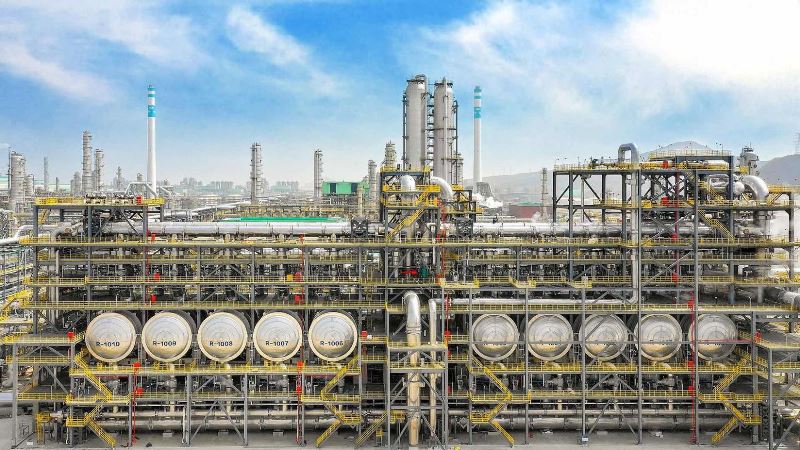The process uses fixed-bed reactors and operates at optimum pressure and temperature to maximize catalytic dehydrogenation of alkanes for high yields of alkenes at low costs

Image: The startup of the Hengli plant marks the 21st CATOFIN unit in operation. Photo: Courtesy of Clariant.
Swiss speciality chemicals company Clariant has announced the start-up of its CATOFIN catalyst at Hengli Group’s new mixed-feed dehydrogenation plant in Dalian, China.
Clariant said that the new unit combines propane dehydrogenation (PDH) with iso-butane dehydrogenation (BDH) process technologies, and produces more than 1 million tons of olefins per year.
Chinese dehydrogenation plant becomes the largest plant to use CATOFIN catalyst technology
The advanced process combines Clariant’s CATOFIN catalyst together with McDermott’s Lummus process technology and is set to enable enhanced reliability, yield, cost efficiency and simplicity.
Clariant said that in addition to the CATOFIN catalyst, the facility also employs its innovative Heat Generating Material (HGM) to produce its on-purpose olefins.
Hengli Group’s new dehydrogenation plant in Dalian is designed to process 500KTA of propane and 800KTA of iso-butane feeds to produce propylene and iso-butylene.
Hengli Petrochemical Refinery chief engineer Guangqin Peng said: “We are very proud of our achievements on this groundbreaking project. The fast, smooth and successful startup of this world’s largest paraffin dehydrogenation unit would not have been possible without reliable and experienced partners like Clariant.”
Clariant said that its CATOFIN catalyst is an extremely reliable technology customised for the production of light paraffin dehydrogenation, and on-purpose production of propylene.
CATOFIN technology and catalysts facilitates dehydrogenation of isobutane, n-butane or propane to isobutylene, n-butenes or propylene respectively, based on the Houdry process of catalytic cracking.
The process at the new facility depends on a highly selective CATOFIN catalyst and operates at a thermodynamically-advantaged reactor pressure and temperature to maximize yield.
The startup of the Hengli plant marks the 21st CATOFIN unit in operation, making Clariant’s total olefin production capacity more than 9million tons.
Clariant Catalysts business unit senior vice president & general manager Stefan Heuser said: “We are honored that our CATOFIN catalysts and Heat Generating Material were selected by Hengli for its new production facility. Together with our technology partner, McDermott’s Lummus Technology, we are proving, yet again, the outstanding benefits of CATOFIN for propane and iso-butane dehydrogenation.”
